Introduction of the Constantine the Philosopher University in Nitra at the 200th anniversary celebrations of the Hungarian Academy of Sciences
As part of the 200th anniversary celebrations of the Hungarian Academy of Sciences (MTA), May 2025 has become the opportunity of introduction for Hungarian scientific institutes and organisations from outside the borders of Hungary. As part of the celebrations, the Faculty of Central European Studies of the Constantine the Philosopher University in Nitra has introduced itself at the MTA’s headquarters on the 26-27th of May, in the framework of a two-day event series. For decades, our faculty has been one of the most important centres of Hungarian university education in Slovakia, as well as a key institution for preserving Hungarian scientific and cultural identity outside Hungary.
The aim of the event was to provide the professional audience from both within and outside Hungary, as well as the interested public, with a comprehensive overview of the Faculty’s scientific, educational and cultural activities. Over the course of two days, three faculty institutions – the Institute of the Hungarian Language and Literary Science, the Department of Tourism and the Institute of the Education of Teachers – presented their teaching activities, research, professional achievements, innovations and community involvement in various formats.
Science and community in focus
On the opening day of the event on the 26th of May, the Institute of the Hungarian Language and Literary Science gave a comprehensive professional presentation.
First, the Institute's linguistic research was presented, ranging from programmes supported by the Hungarian Academy of Sciences to current language management issues in Hungarian-Slovak bilingualism, terminology work and international research collaborations. This was followed by a presentation of the Institute's research in the field of literary studies, including transculturality, which is not only a research focus but also an inspiration for methodological innovations, theoretical frameworks and creative writing. During the afternoon, the Institute's doctoral study programme was also introduced, with former students sharing their experiences and current PhD students presenting their research topics. The presentation of publications and journals deserves special attention: the Institute's teachers displayed a considerable amount of professional material, both in their presentations and in its physical form – through journals and textbooks exhibited on site. This rich material and its presentation also indicate the Department's decisive role in Hungarian minority education, Hungarian mother tongue teaching, and in Hungarian and international academic life.
During the afternoon, a writers and readers meet-and-greet session also gave the public the opportunity to discover the creative writing of the Institute's literary staff. The discussion highlighted the importance of the interconnection between living literature and university education. The day concluded with a unique and innovative literary board game, which can also be used as a methodological tool for teaching literature.
On the 27th of May, the introduction of the Institute continued, with the audience able to learn about the scientific results of the Institute's teachers, that can be applied in public education, and about innovations in literary and language pedagogical methodology.
Afterwards, the staff of the Department of Tourism presented the professional profile of their department through topical themes, including new digital learning environments, the role of language and intercultural competences in tourism, and the economic impact and development potential of tourism.
Representatives from the Institute for Teacher Training presented their wide range of work, from modern experiential approaches to health and environmental education and to the development of digital competences through robotics.
As a fitting conclusion to the two-day programme, the decades-long history of the faculty’s Hungarian choir was brought to life through a video of archival footage and recollections, along with a musical insight into the legacy of Zoltán Kodály, a renowned Hungarian composer and educator. The final performance featured instrumental solos by members of the university choir, evoking the rich musical tradition that remains one of the most cherished legacies of Hungarian teacher training in Nitra.
Together in the Hungarian scientific community
The introduction of the Faculty of Central European Studies at the Constantine the Philosopher University in Nitra, organised and managed with precision and care by Professor Ildikó Vančo, was an excellent opportunity for the Faculty to show how Hungarian higher education outside Hungary’s borders can both preserve its values and respond to the challenges of the 21st century. The lectures, presentations and reflections over the two days were not only an academic experience but also a community experience, contributing to a particularly valuable chapter of the MTA’s jubilee year.
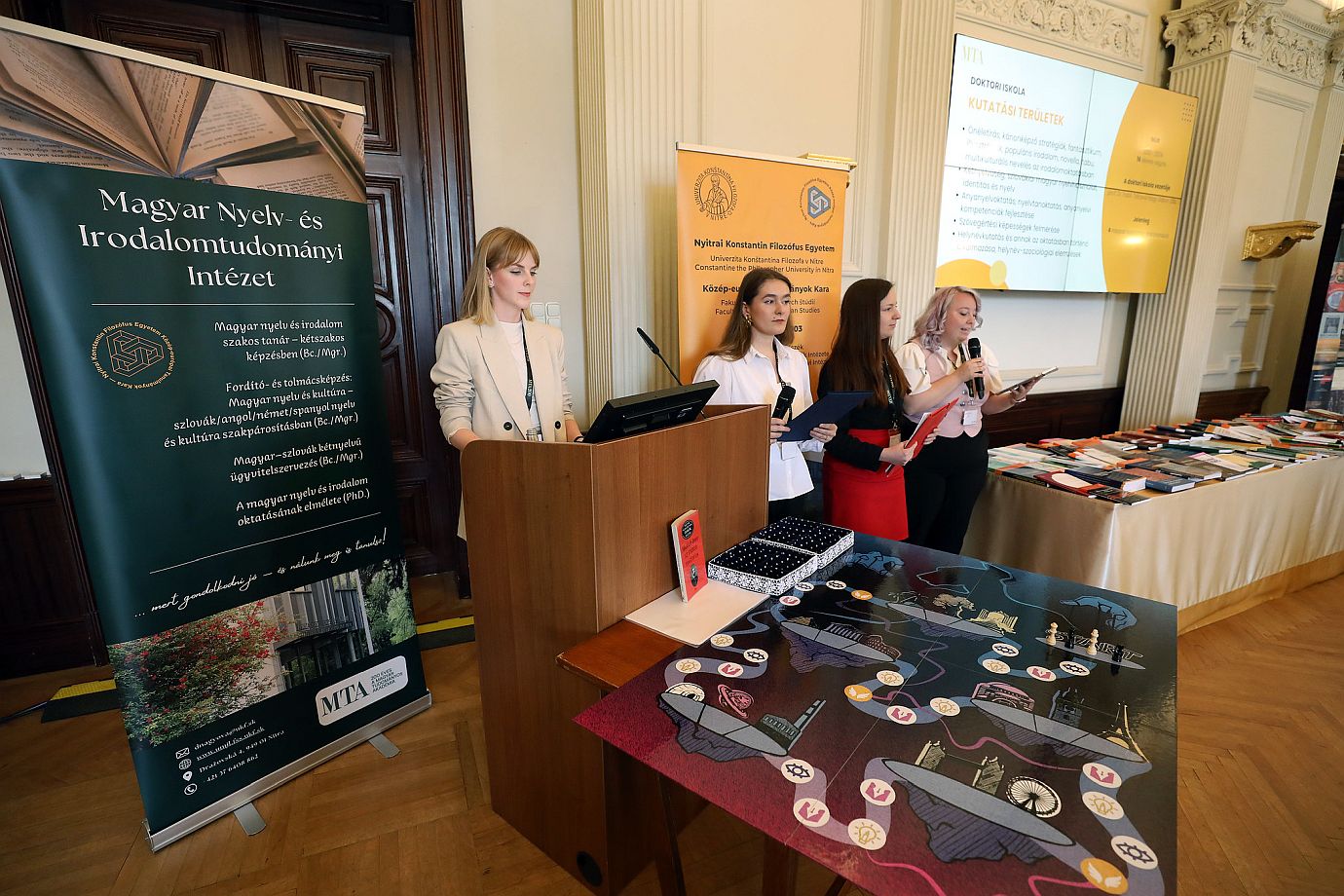
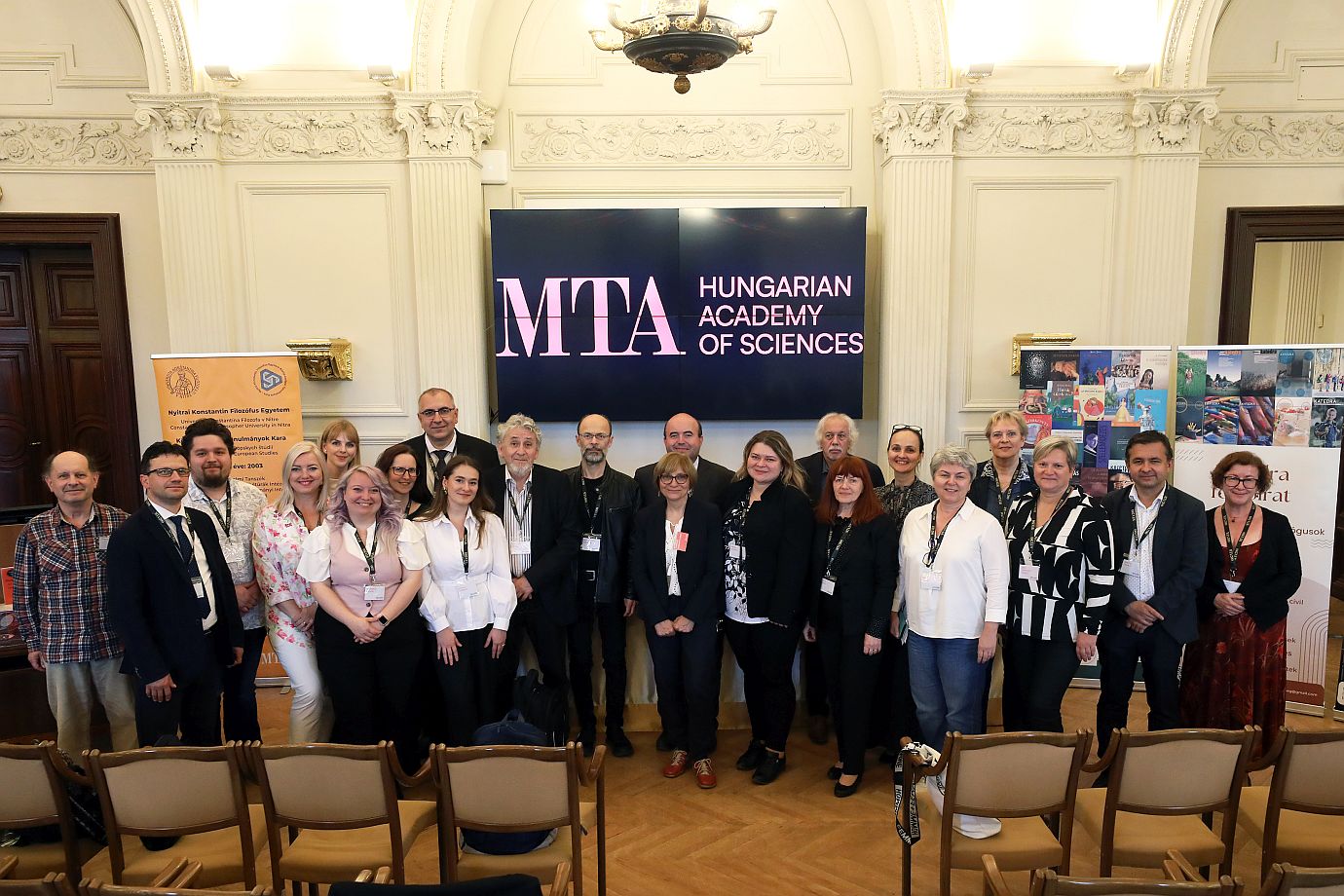
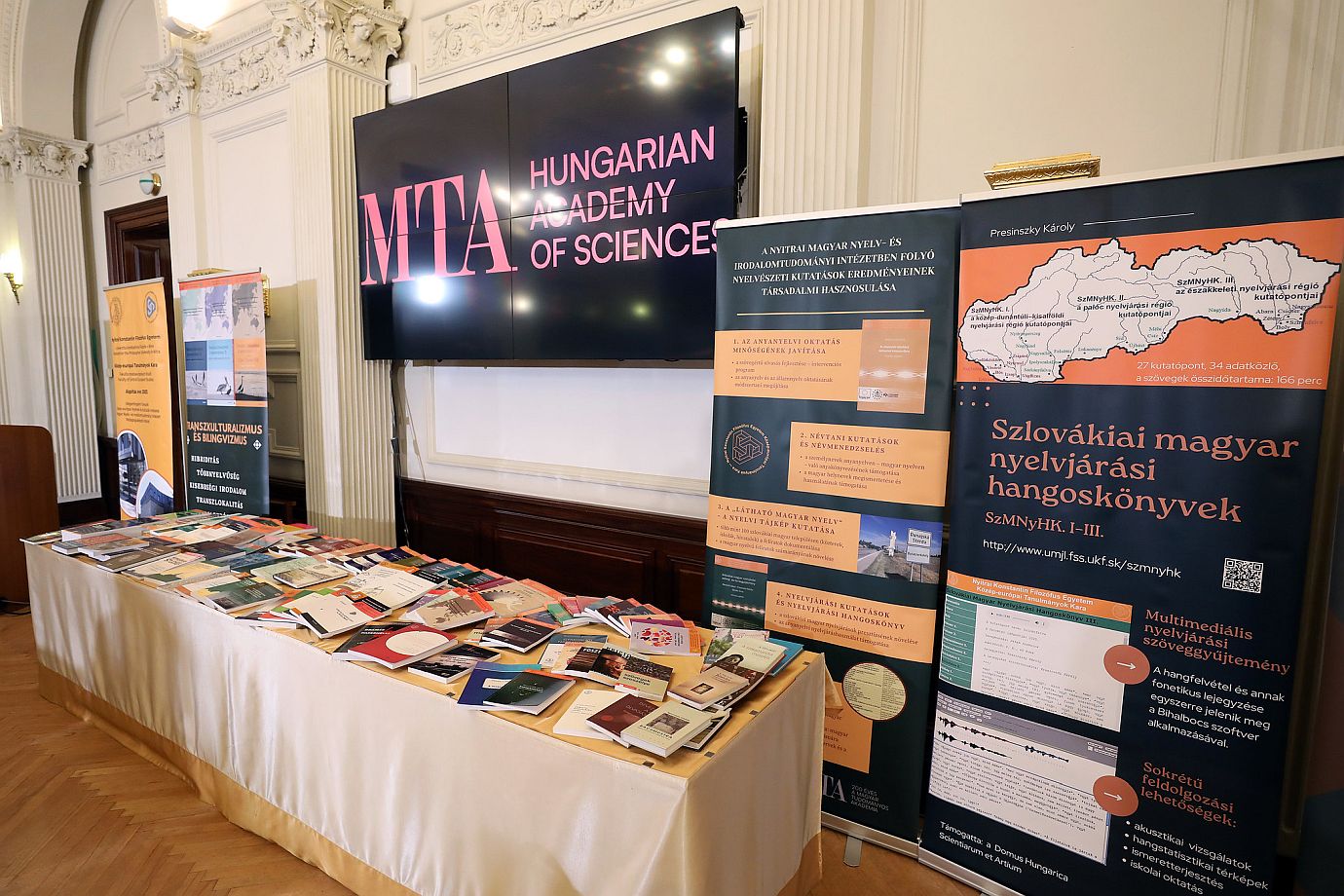
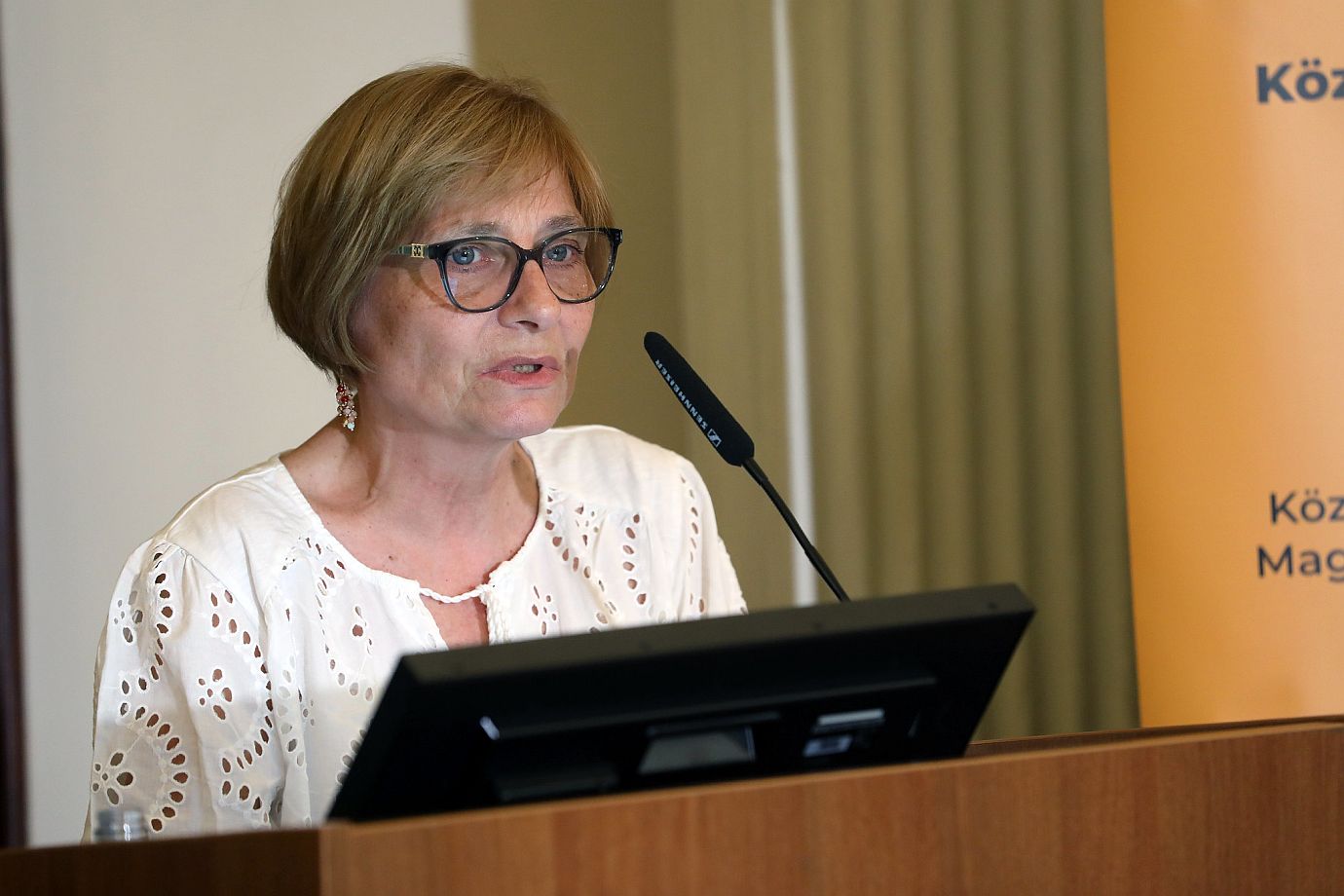

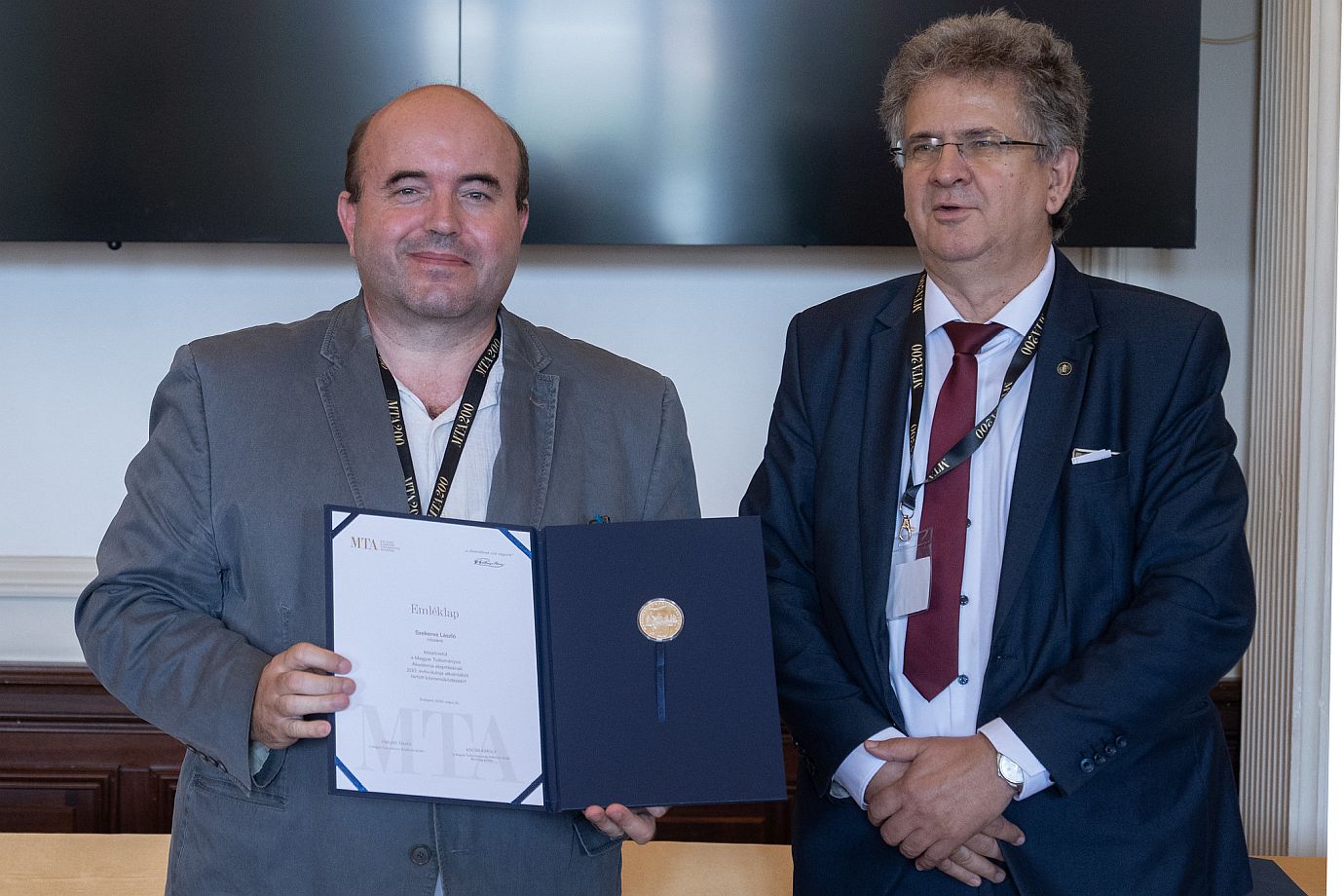
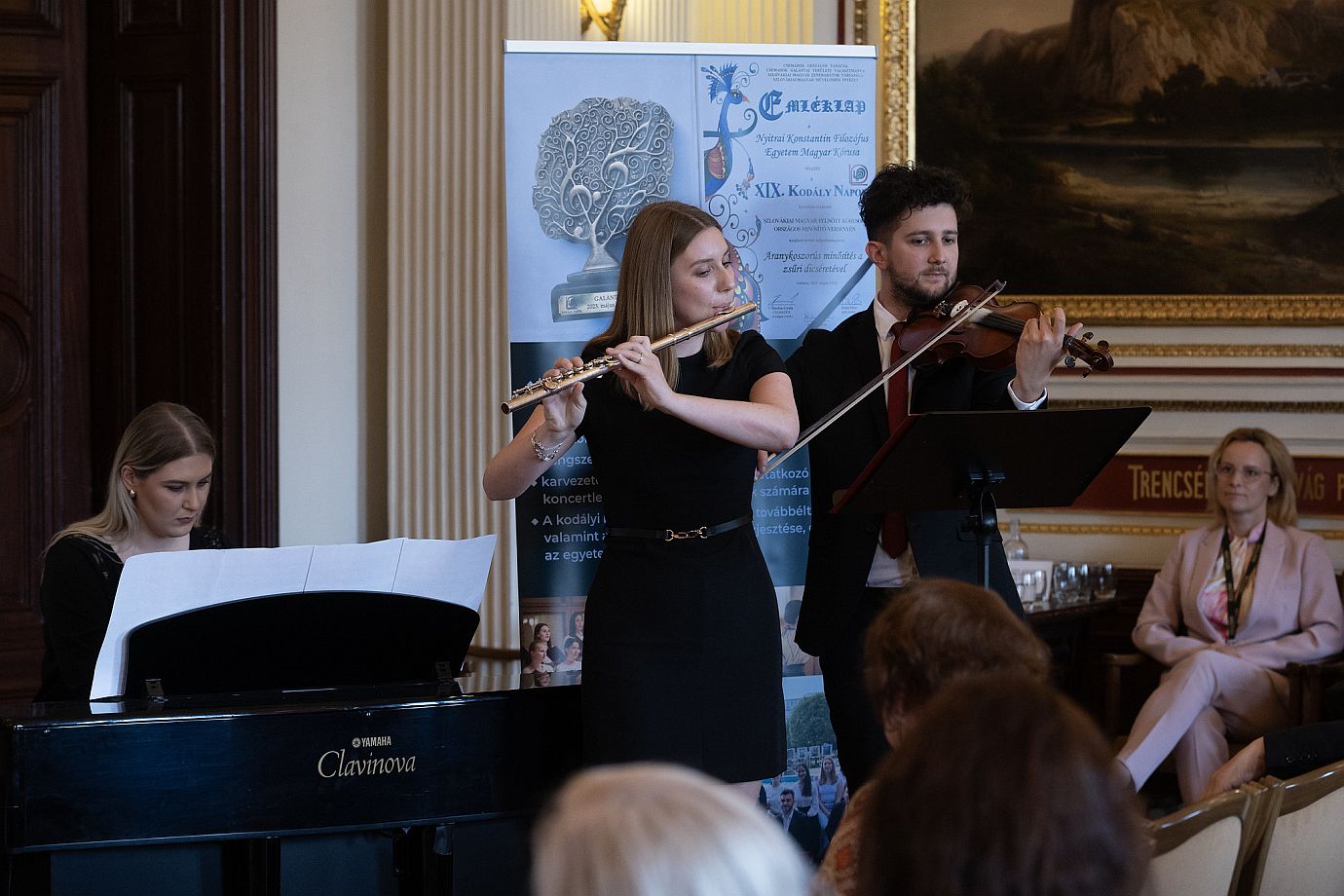
Mgr. Anna Oros Bugár, Mgr. Patrícia Kovács




